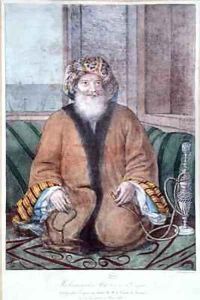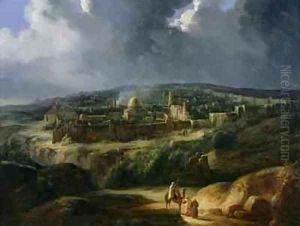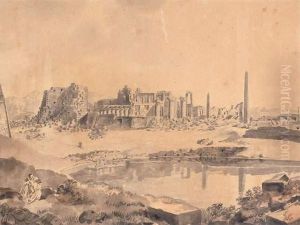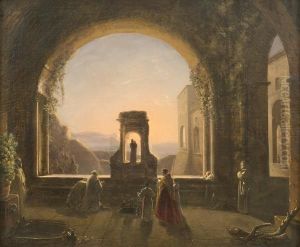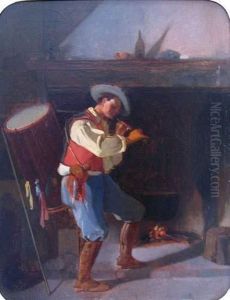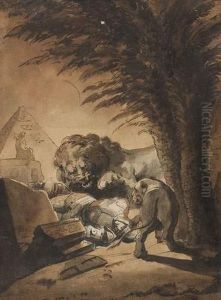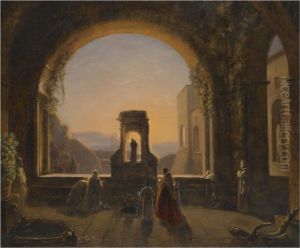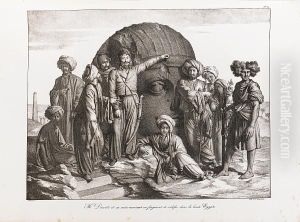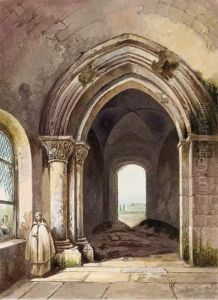Auguste Forbin Paintings
Auguste de Forbin was a French painter, art collector, and museum official born on August 21, 1777, in La Roque-d'Anthéron, Provence. He hailed from an aristocratic family, which provided him with an education befitting his class, including training in the arts. His early interest in the arts was nurtured by his travels through Italy, where he was deeply influenced by the works of the Renaissance masters.
After his travels, Forbin continued to develop his skills as a painter. His artistic career was temporarily interrupted by the French Revolution and the ensuing political upheavals, but he eventually returned to his passion. He became known for his historical paintings and his romantic depictions of exotic subjects, which were influenced by his travels in the Middle East. Forbin's works were exhibited at the Paris Salon, where they received a positive reception.
In addition to his painting career, Forbin is perhaps most remembered for his influential role in the French cultural institutions. In 1816, he was appointed as the director of paintings at the Musée du Louvre by King Louis XVIII. During his tenure, he oversaw significant developments at the museum, including the reorganization of its collections and the acquisition of numerous important artworks. His efforts contributed to the establishment of the Louvre as one of the foremost art museums in the world.
Forbin was also a writer, and he authored a book titled 'Voyage dans le Levant' ('Journey in the Levant'), which detailed his travels in the Eastern Mediterranean. This publication reflected the wider European interest in Orientalism at the time.
Auguste de Forbin's contributions to the French art world extended beyond his own creations to include his stewardship of national art collections and his influence on the presentation and preservation of France's art heritage. He died on February 13, 1841, in Paris, leaving behind a legacy that would be appreciated by future generations of art lovers and historians.
